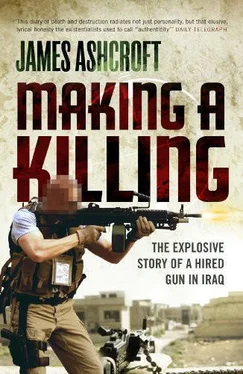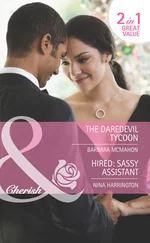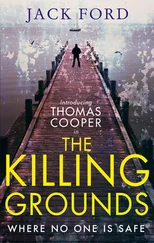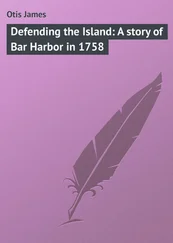It would be too simplistic to blame insensitive Coalition troops for fanning the flames of the insurgency. I had done my research before leaving for Iraq to make sure I knew what I was getting myself into. As far as I could see as a former infantry officer, the occupation troops had from the start been dealt an awful hand to play by their superiors.
Summer passed into autumn with our only dramas being the dozen or so incidents a week with the guard force. After the June 2004 handover of power to the Iraqis, the CF had been renamed the MNF, or Multi-National Force, the CPA was now the US Embassy, and the Green Zone was the International Zone. They did not rename the Green Zone Café, where we had spent many pleasant evenings, because that had been blown up along with the street market in the CPA. Our misgivings about giving large numbers of Iraqis free rein around the Green Zone had been well founded. The CF and then the MNF had refused to use explosives search dogs around Iraqis in case they offended them.
Ramadan had arrived with the usual deadly laser breath from our fasting Iraqis and the even deadlier flurry of insurgent attacks. In the first three weeks of October 2004 there were 55 VBIEDs in Baghdad alone. The night I arrived from leave the CPA was hit by 75 mortar and rocket strikes.
More relevant to us was that Badger had brought us three immaculate PKMs and a Dragunov rifle as early Eid presents. He had an ex-Para mate working on a contract in Taji airbase guarding enormous warehouses stuffed full of former-regime weapons. Apparently every day an OGA, aka CIA, plane took off fully laden with weapons to God knows where. Undoubtedly Badger had squirrelled away several items for himself to trade later but these titbits were a welcome addition to our arsenal. We had already traded our RPDs for para M249s and our G3s were under our beds; we carried M4s on the streets now. This was a big improvement since we each normally carried about 300 rounds per man and 5.56 weighs just under half of 7.62 NATO.
The brakes weren’t up to slowing all the armour on the BMW and during October I crashed twice and was banned from driving, although that became academic one morning in the early hours when Dai tried to mount an 18-inch kerb at 140mph. He had been attempting to avoid running through a CF patrol at night which had their lights off. After crawling from the wreck, Dai and Les were nearly shot by the same patrol until they were identified as friendlies.
To celebrate the end of Ramadan, we sent our officers out to the various sites with sheep as gifts and roasted two of them with our guards at Site Juliet, the closest. We left early in the soft-skinned Peugeot to rush home and catch Baywatch in Arabic. On the way, two young guys pulled pistols and blazed away at point-blank range as we passed. Dai fired back half a mag as we sped off and after inspecting the damage to the car back at the villa he pulled out a flattened 9mm round that had embedded itself in the driving seat headrest where he had been sitting. It had hit the 1cm-wide metal support. A few millimetres left or right and it would have zipped straight through the cushion and into the back of Dai’s head.
We called Colonel Faisal and Sammy to let them know and they told us they were on their way back to the villa with an escort of guards from Juliet. We had gone back to watching the episode where Mitch falls for his hot, Swedish au pair, and forty minutes later Sammy turned up as we were getting ready to hit the gym at the CPA.
‘Colonel Faisal, he is dead,’ he said simply. Then he began to cry quietly.
Sammy had left early to join us but had heard shooting behind him. He had wheeled his car around and retraced his route back to Colonel Faisal’s car. It was on fire and all the men inside were dead, Moyed, the driver, who had been tortured by Saddam’s henchmen, Abeer, a guard, and in the back Faisal and Senior Lieutenant ‘Handcrusher’ Usama, who had always tried to kiss Les whenever he saw him. Sammy had carried on driving back, looking for the escort of guards, but didn’t find them until he arrived at the gates of Juliet where they were still waiting. They had been ordered not to move by Obi-Wan Kenobi.
‘That fucking cunt!’ Les was all for taking Obi-Wan down the range for an impromptu execution.
The whole thing stank. Faisal’s group had been wearing civvies and had clearly been targeted. The rivalry between Ibrahim and Faisal had become more pronounced as we handed more power over to the Iraqis, and there had been death threats to Faisal in the past. Obi-Wan was Ibrahim’s right-hand man. On our way back from Juliet, we had only been shot at by a couple of chancers, whereas witnesses said that there had been two cars full of men waiting for Faisal and Usama. Obi-Wan later came up with some crap excuse as to why he had ordered the escort to stay, but the sure proof as far as I was concerned was that Ibrahim refused to fire him. To add insult to injury, he promoted Obi-Wan to senior lieutenant to take over Usama’s job.
Faisal had been an inspiration to the guards and his death had a crushing impact on both them and us. He had never abused his position and had refused to employ his relatives, since he regarded this as the ‘bad’ Iraqi way. He had shared many dangers and spent many nights ‘just dropping by’ for a drink with us on the roof. We had created a fair, uncorrupted and multi-ethnic, meritocratic guard force. But Iraq was seeping in now. The violence of the turf wars, the nepotism and the corruption would start taking root whenever we turned our backs.
So I was in a foul mood when I was summoned to the CPA to help Colonel Hind in one of his last presentations before leaving the country.
He had asked for my input for a briefing to a two-star general about insurgent threats and we had ended up having a vigorous discussion in the Embassy chow hall. I refused to call it an argument because that implied two opposing but informed views, and as far as I could work out Colonel Hind was woefully ignorant. The problem was he insisted on lumping together all enemy forces under the politically correct title of AIF or ‘Anti-Iraqi Forces’.
I tried to explain that the situation was more complex than that. Much of the rural ‘AIF sabotage’ against infrastructure targets was carried out by the very same tribes hired as guards in order to extort more money. When the sheikhs demanded more money to ‘hire more guards’, the biggest mistake was to pay them. The situation would quieten down again until either the sheikh wanted even more money, or the neighbouring sheikhs were furious that they were being paid less. Then, all the tribes would be out blowing pipelines and claiming that they needed to hire more guards. We knew who was blowing up the pipelines because (a) insurgents would not wander into tribal areas because the tribes would kill them and (b) the inexperienced tribesmen often blew themselves up setting the devices.
There are few things more tragic than going to a village to inspect corpses who are ‘strangers I have never seen before’, when the sheikh is after reward money for killing dead terrorists, and all of the grief-stricken women and half the men are there weeping and having to be pulled back from the bodies of the ‘strangers’. The only solution was to penalise the sheikhs and deduct payments if any sabotage occurred in their areas. Under Colonel Hind, the reverse happened.
I also knew from an Iraqi oil engineer that an oil pipeline from Iran was regularly blown up by Iranian saboteurs from over the border coming in on motorbikes. He knew because his opposite number at an Iranian refinery had apologised. He said that when oil was pumped into the Iraqi pipes, the pressure dropped in the Iranian refinery, meaning that the workers had to stay late at work, meaning that their wives would complain, or they missed the football on the telly. So they would hop over the border, blow the pipeline, the valves would shut and they would enjoy high pressure and early afternoons off for several weeks until the Americans organised a repair crew. Nothing to do with the insurgency at all.
Читать дальше












